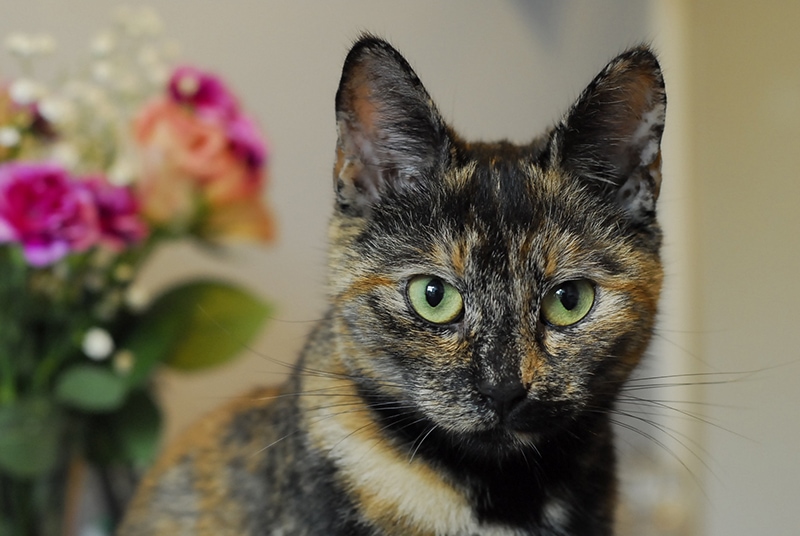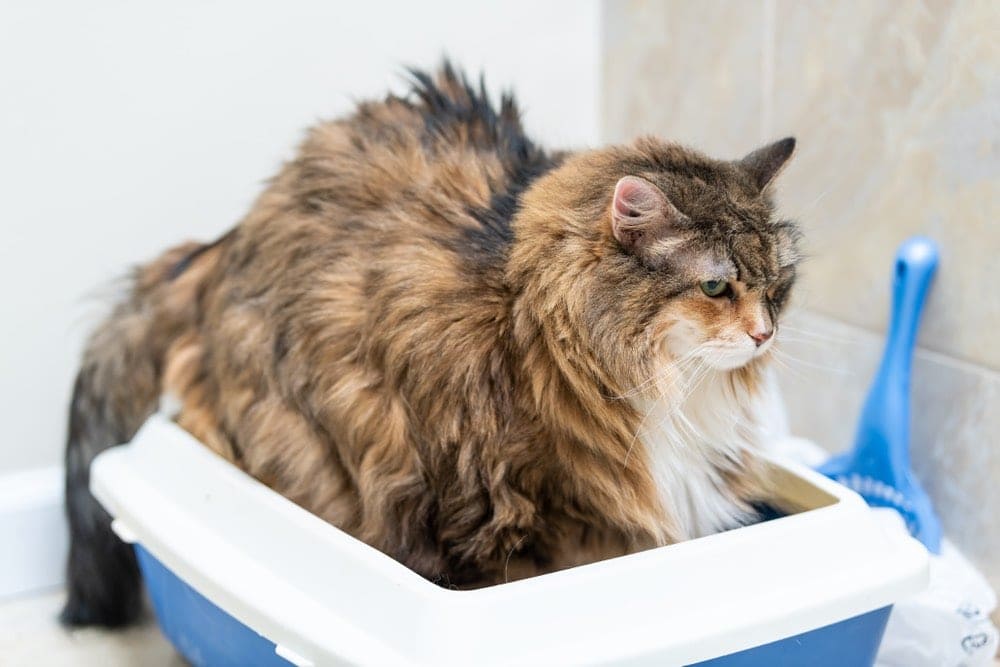Can Cats Eat Sesame Seeds? Potential Health Benefits

Updated on
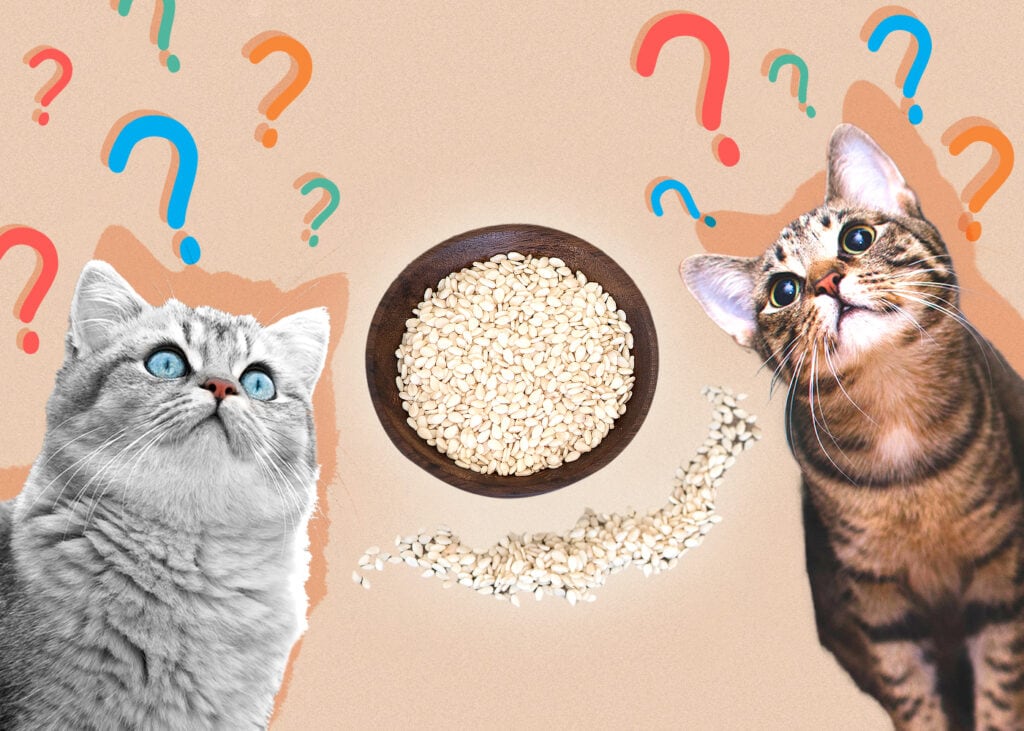
One of the most endearing qualities of cats is their curiosity. One of the ways that cats exhibit curiosity is with the food that humans eat. Even though the food may not necessarily be good or beneficial for your cat, eating it is the easiest way for them to explore the food.
One of the foods that you may be wondering about your cat eating is sesame seeds, especially if you eat a lot of bagels, toast, salad, or other foods containing them. The good news is that sesame seeds will not harm your cat, so it is safe for them to eat in moderation. But they are not an essential part of your cat’s diet, so they shouldn’t eat sesame seeds on a regular basis.
Are Sesame Seeds Safe for Cats to Eat?
Even though some foods are safe for humans to eat, it doesn’t mean that they are safe for our feline friends. Some foods can be toxic, while there are others that your cat just can’t digest properly which could cause him to become ill.
The good news about sesame seeds is that they don’t pose any inherent risk for cats as far as toxicity is concerned. They are safe for your cat to eat and may actually help with their digestion of other foods if they do eat sesame seeds.
However, just because sesame seeds may provide some benefit to your cat, it doesn’t mean that they provide any nutritional benefits. Even though sesame seeds are nutritious for humans, they don’t contain all the nutrients that your cat needs to survive.
But what exactly do we mean by that? We mean that cats are obligate carnivores. They need meat to survive and can’t survive on a plant-based diet. It all goes back to the way that a cat’s digestive system works. They can’t digest plant-based foods such as sesame seeds the way that humans, or even dogs, can.
Of course, we’re talking about your cat eating copious amounts of sesame seeds at one time here or living off of a diet of exclusively sesame seeds. If your cat eats one or two sesame seeds off the top of your bagel, it is highly unlikely that it will affect your cat in any way.

Do Sesame Seeds Provide Any Benefits for Your Cat?
Like other seeds, sesame seeds do have nutritional value. They contain vitamins, minerals, and antioxidants that can help keep your cat’s body functioning properly and protect him against certain diseases.
- Vitamin B: supports a healthy metabolism
- Vitamin E: helps the heart and eyes stay healthy
- Calcium: supports healthy bones
- Iron: needed for proper blood function
- Magnesium: helps lower blood pressure
- Zinc: supports a healthy immune system
Sesame seeds are also rich in antioxidants, particularly sesamin and sesamolin, which can help fight against certain diseases, including cancer. They are also high in fiber, which can help to keep your cat’s digestive system in good shape.
Another nutrient that sesame seeds are high in is plant-based proteins, which can help to keep your cat’s muscles healthy. One of the more important benefits of sesame seeds is that they are also thought to lower cholesterol, which is one of the leading causes of heart disease.
Plant-Based vs Meat-Based Proteins
However, even though sesame seeds are high in proteins, they are not the kinds of proteins that benefit your cat the most. Cats need meat-based proteins, which contain all of the essential amino acids for their bodies to function properly and keep them at their healthiest. Plant-based proteins that are found in sesame seeds may lack some of the essential amino acids that your cat needs.
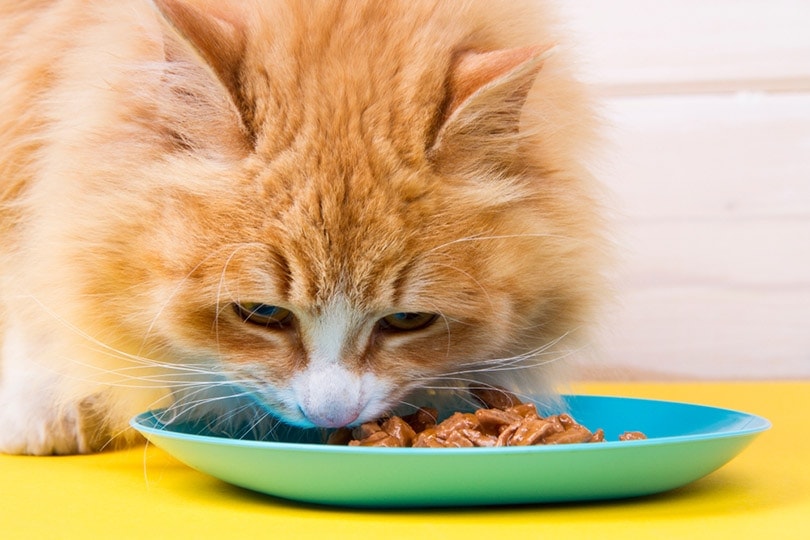
What About High Cholesterol?
Plus, even though sesame seeds can lower cholesterol, and cats can be affected by high cholesterol, it is an uncommon condition for cats to have. If a cat does have high cholesterol, it is usually caused by an underlying condition and has very little to do with your cat’s diet. In other words, sesame seeds aren’t going to be the solution to your cat’s high cholesterol.
Is It Even Necessary?
Finally, it’s important to keep in mind that sesame seeds are tiny. Your cat would have to eat a lot of them to really reap the benefits that they can provide. Any vitamins, minerals, and proteins that could possibly benefit your cat are likely already present in your cat’s normal food, so purposefully feeding your cat sesame seeds is unnecessary.
Are There Any Risks If Your Cat Eats Sesame Seeds?
Besides not containing the exact nutritional components your cat needs, there are very few risks associated with eating sesame seeds. Of course, if your cat eats too many, it can cause digestive discomfort since cats don’t digest plant-based proteins as well as they do meat-based proteins.
With that being said, eating one or two sesame seeds by themselves shouldn’t cause any harm to your cat. However, there are a couple of things that you need to be aware of if your cat does eat sesame seeds.
Dental Issues
The first thing to be aware of is that the seeds could get stuck in your cat’s teeth. They’re tiny, and it would be easy for a sesame seed to find a way between your cat’s teeth and gums. If the seeds do get stuck and aren’t removed, it can cause discomfort for your cat.
Another potential issue if a sesame seed gets stuck in your cat’s teeth is a tooth or gum infection. Food that stays stuck in your cat’s teeth can lead to bacterial infections, which can be a more severe problem for your cat than just discomfort and will probably result in a vet visit.
Although it is unlikely that your cat will develop an infection as a result of eating a sesame seed, you can never rule anything out. It’s a good idea to check your cat’s teeth if you notice any discomfort after eating sesame seeds and brush your cat’s teeth to remove any seeds that may be stuck.
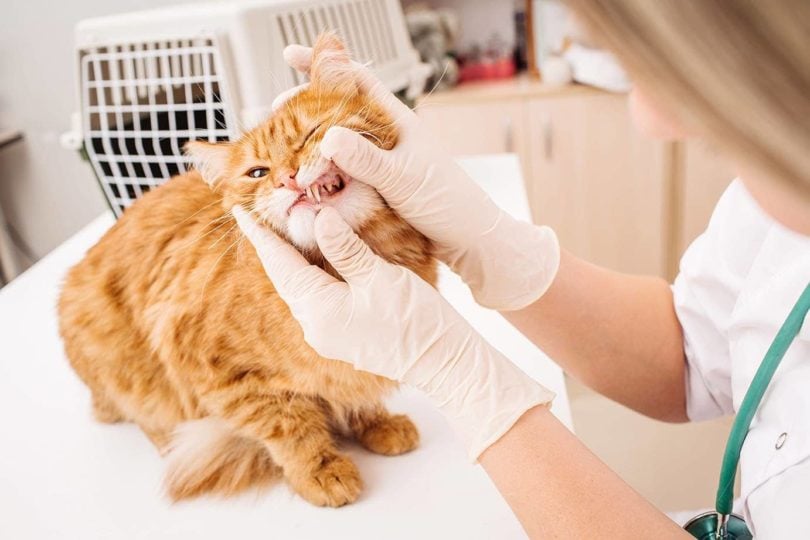
Other Foods
Although sesame seeds themselves aren’t harmful to cats, some of the foods that they might be found on or in might be. One common food to find sesame seeds on is bread, such as bagels, buns, or toast. Although bread isn’t harmful to your cats, as with sesame seeds, they shouldn’t eat too much of it either.
Sesame seeds can also be found in certain sauces. If your cat eats some of the sauce, it may make him sick even if the sesame seeds themselves don’t. Again, you just need to watch your cat closely after eating foods that contain sesame seeds. Although sesame seeds by themselves won’t hurt your cat, foods that contain them might.
Can Cats Drink Sesame Seed Oil?
Sesame seed oil is one of the main uses for sesame seeds. It is commonly used for cooking, and again, your cat may be tempted to taste some of it if he’s curious about it. But is sesame seed oil safe for cats?
As with the sesame seeds themselves, sesame seed oil will not harm your cat. But again, eating large amounts of sesame seed oil provides very little for your cat in the way of nutrition, so it shouldn’t be fed to him on a regular basis.
How Should You Feed Sesame Seeds to Cats?
Sesame seeds should never be a permanent part of your cat’s diet. However, if your cat seems to like eating sesame seeds, you can give them to him as an occasional treat in order to change the flavor of his food a little.
Remember that cats can have trouble digesting sesame seeds. Although they can eat uncooked sesame seeds, the best way to feed them to your cat is to roast them first. Roasting the seeds can make them a little bit easier for your cat to chew and digest. Just be sure to roast them by themselves and don’t season them in any way, not even with salt.
After you’ve roasted the seeds, all you have to do is add a few to your cat’s food bowl when you feed him. Mix them into the food in the bowl, and your cat can enjoy a tasty new flavor when he eats. However, it’s important that you don’t do this every day. Once every other week or even once per month should be a safe frequency at which your cat can be given sesame seeds.
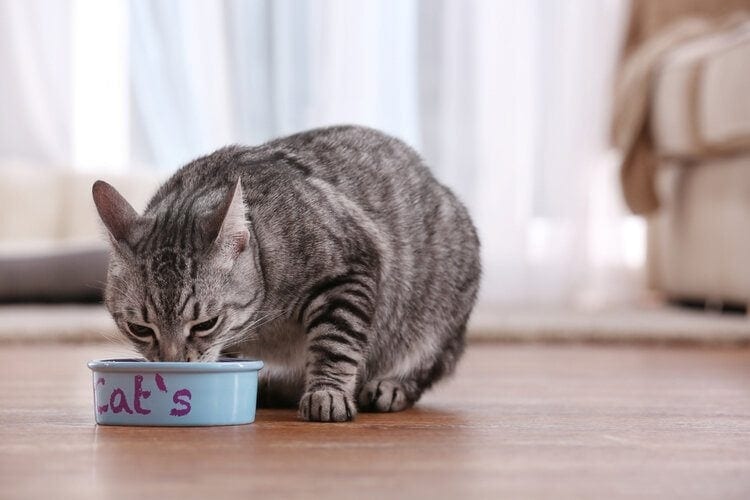
Conclusion
Your cat may love eating sesame seeds off of an unattended bagel or piece of toast, or even eating them off of the floor if they fell off. If that happens, don’t worry, as sesame seeds by themselves will not harm your cat. However, they provide very little nutritional benefits, so they should not be fed to cats except as an occasional snack.
Looking for more information on what cats can eat? Check out:
- Can Cats Eat Pine Nuts? Everything You Need to Know!
- Can Cats Eat Hemp Seeds? What You Need to Know!
Featured Image Credit: TheUjulala, Pixabay
